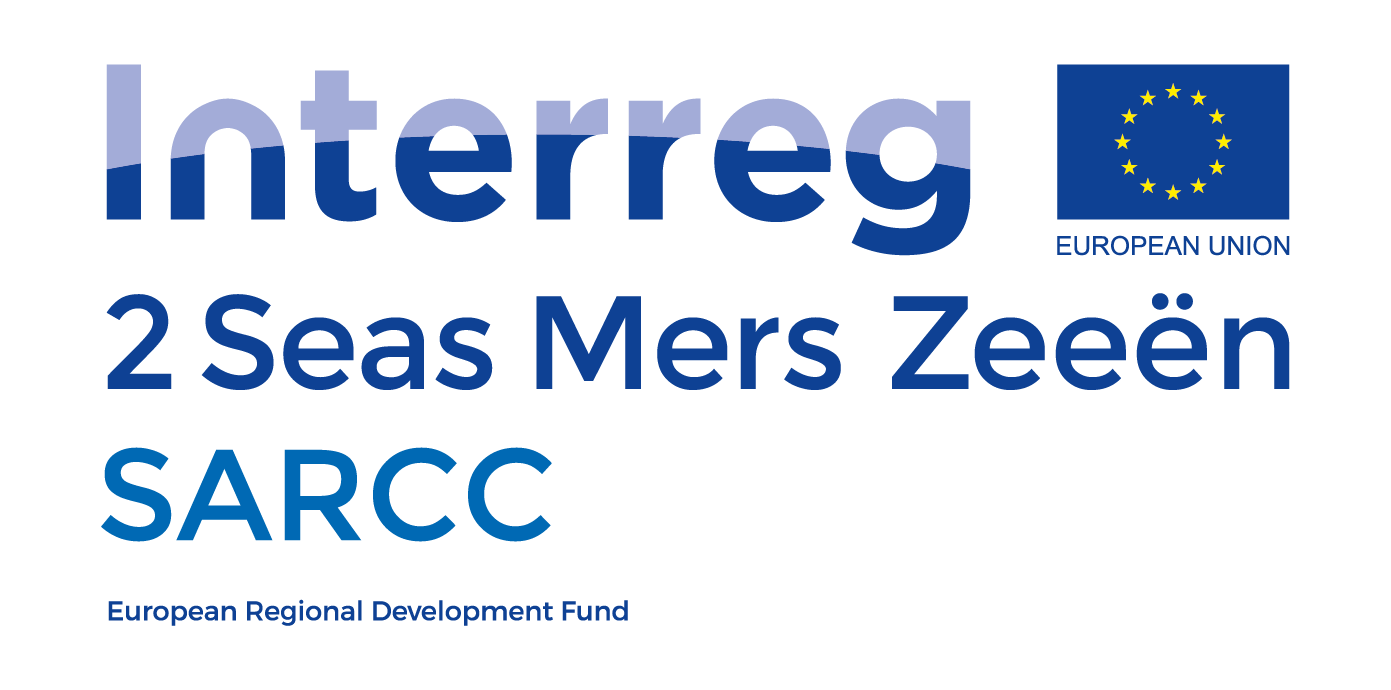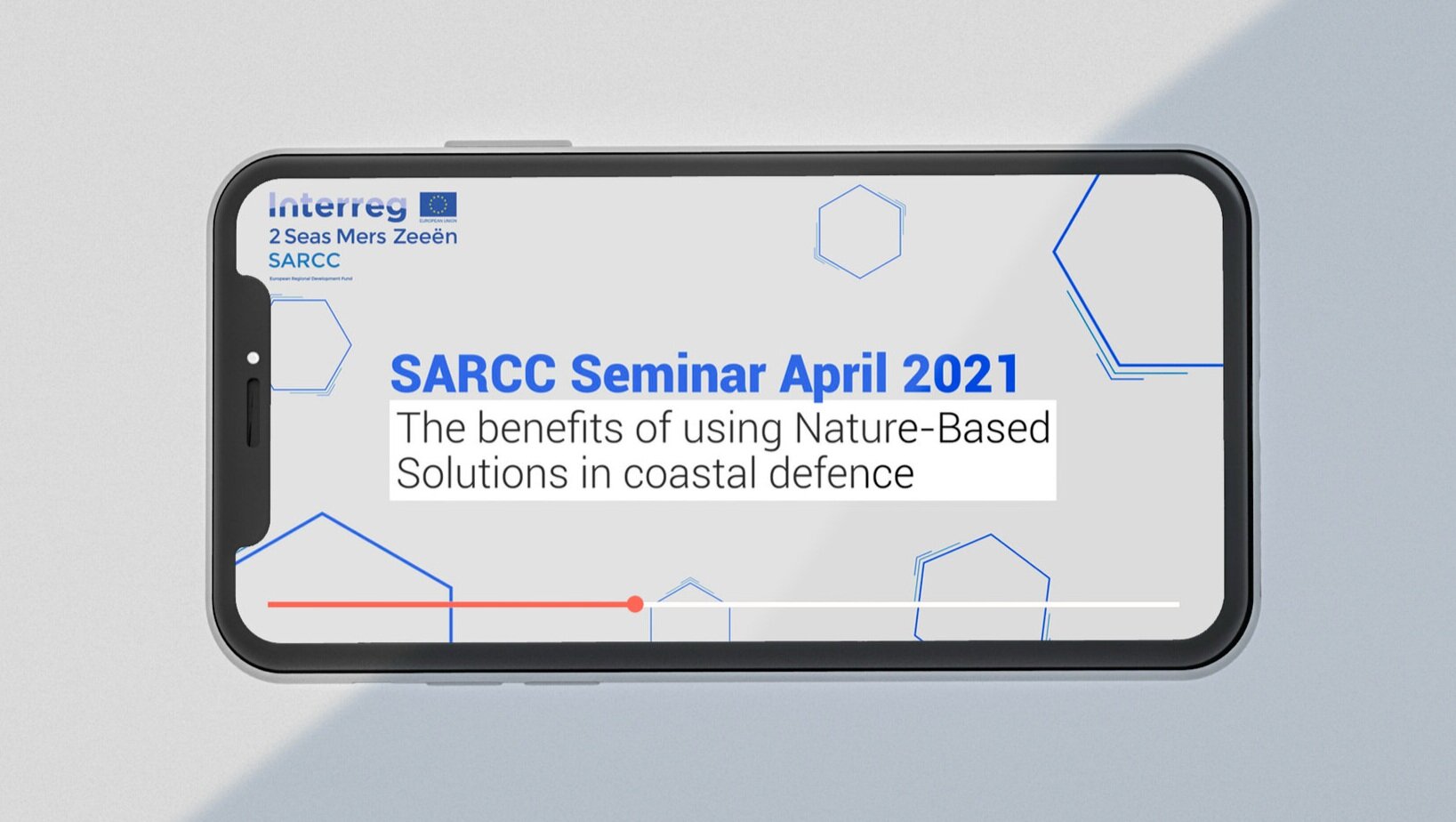SARCC April 2021 Seminar Overview
The second SARCC webinar, held in April 2021, was organised by the
Environment Agency (Devon, Cornwall & Isles of Scilly area), Exo Environmental
and Flemish Department for Environment, Spatial Planning. With all that we’re
learning about Nature-based Solutions (NBS) through the work of the SARCC
project, we were excited to share this with our fellow coastal practitioners, with
the aim of hopefully sparking ideas, sharing good practise and generally making
the world of NBS that bit more accessible, to encourage the use of NBS schemes
over traditional ‘grey’ infrastructure in the future.
With the ongoing global pandemic, the SARCC team took up the challenge of delivering a workshop over virtual means and embraced the opportunity of reaching a wider audience, including having everything translated into Dutch. The webinar consisted of eleven pre-recorded presentations from subject-matter experts, which were made available to signed-up attendees two weeks prior to the live session to watch at their own convenience, which are now available on the SARCC website. These presentations focussed on building upon topics first introduced at the November 2020 webinar, as well as sharing some UK case studies of NBS work and strategic thinking. The presentations fit into the following themes:
Climate and coastal change, and communicating this data
Nature-based Solutions as dynamic environments
Assessing the added value of Nature-based Solutions
Overcoming the challenges of Nature-based solutions
Identifying and sharing Nature-based Solution opportunities
Financing and insurances
The live session consisted of several of the subject-matter experts making up a
panel for discussion and Q&A. This provided a space for the over 100 delegates
who attended the session to ask questions specific to their interest and work
priorities and highlight to the SARCC team where we can provide the most
relevant and valuable information for our audience, both for the session itself
and for future events.
The panel consisted of:
John Cocker (South West Coast Group Chair, who moderated the session)
John Bennett (SARCC project manager, who provided an introduction to
the project)Garry Momber (Maritime Archaeology Trust, who led on historic trend
analysis discussions)Professor Kenny Coventry (University of East Anglia, who led on communication of climate science discussions)
Joseff Saunders (Plymouth Coastal Observatory, who led on beach monitoring and citizen science discussions)
Kellie Fisher (Environment Agency, who led on coastal adaptation discussions)
Martin Davies (Environment Agency, who led on traditional Vs NBS
engineering discussions)Justin Ridgewell (Environment Agency, who led on influencing local decision
makers for long-term thinking discussions)Tom Dauben (Environment Agency, who led on strategic planning of NBS
discussions)George Arnison (Environment Agency, who led on funding discussions)
In situations where technical information needs to be communicated to an audience of varying technical knowledge, Professor Kenny Coventry introduced the idea of screening the audience through the use of polls or similar, to help gauge their knowledge and understanding on a topic, prior to the presentation. This will help to dictate at what level to pitch your presentation, and therefore improve the chances of the information landing well with the audience.
The panel explored and discussed ideas on implementing NBS into long term thinking. Martin Davies talked about the UK’s recent FCERM (Flood and Coastal Erosion Risk Management) Strategy and the steps we need to take locally to deliver these ambitions, including innovation and risk. In the delivery of this strategy, Justin Ridgewell detailed about building the long term narrative of coastal change and working with natural processes with both local decision makers and communities, and how this contributes to
‘building a nation of climate champions’.
Through discussion regarding coastal adaption and the rollback of communities
from erosion risk areas, Kellie Fisher highlighted the Defra-supported research and
development project ‘CLIFF’ (Coastal Loss Innovative Funding and Finance), which
is a project looking at potential financial facilitation mechanisms to help people
relocate away from risk of erosion or permanent inundation situation as a result of
sea level rise. George Arnison added that not having a funding model for adaption
in the UK isn’t necessarily a hindrance to delivery, as these situations are all different
and therefore require a bespoke approach. It was agreed that we need to improve
how we share the justifications used in adaption and NBS schemes, so others can
learn from them. This is something we’re excited to help deliver as a SARCC project.
Polls were used during the live Q&A session to help gauge attendees’ understanding
of and interest in NBS. Responses indicated that funding is considered a key challenge
in delivering NBS and that attendees felt the seminar had increased their knowledge of NBS.
All presentations and session recordings can be found on the SARCC website here: https://www.sarcc.eu/2021-seminar



